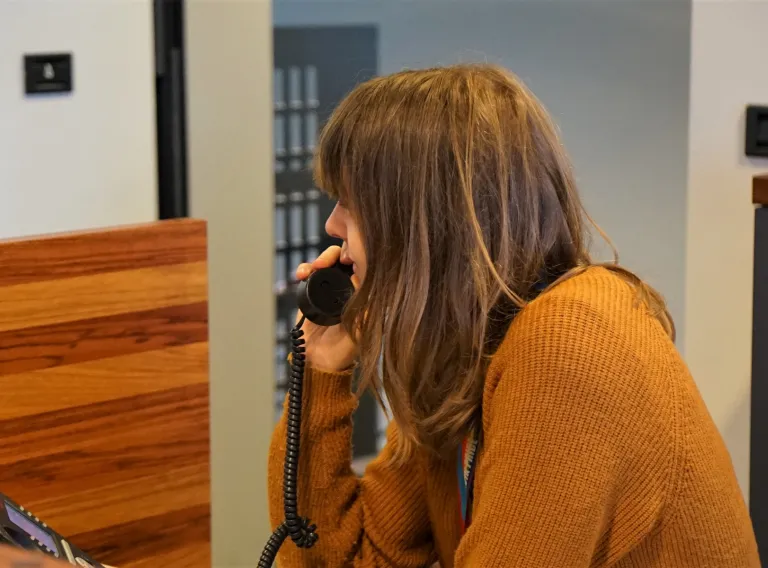
Students at the University of Iceland's Faculty of Social Work have recently volunteered for Reykjavík's Welfare Services where they participate in the project Let's talk (Spjöllum saman); aimed at breaking the isolations of the elderly in these difficult times due to the COVID-19-epidemic.
Reykjavík's Welfare Services and the University of Iceland's Faculty of Social Work collaborate on teaching and research in the field of welfare, and have a long tradition of student vocational training at Reykjavík municipality.
Steinunn Hrafnsdóttir, professor and Vice-chair of the Faculty of Social Work had the thought that her students could become volunteers for sensitive groups in times of COVID-19. Her idea and proposition was well received by Regína Ástvaldsdóttir, head of Reykjavík's Welfare Services, who saw an excellent opportunity for the students to try out as phone pals with the elderly in Reykjavík. The organisers, the project manager of 'phone pals' in collaboration with the Faculty of Social Work, advertised among students in the faculty and there are currently 35 students working as volunteers.
One of them is Ásdís Stella Löve Þorkelsdóttir who is completing her BA degree in the field. "I saw the advertisement and knew of the excellent collaboration between the City of Reykjavík and the Faculty of Social Work and wanted to contribute in these weird times," says Ásdís when asked why she decided to take part in the project. In addition to the students there are employees from the City of Reykjavík and volunteers from the elderly taking part in the project.
They call everyone who is over 85, living alone and has received services from the City of Reykjavík. The phone call includes a status check of their condition and health as well as small talk. The phone call does not replace domestic service, home nursing or other services provided by the City of Reykjavík; it is an addition.
